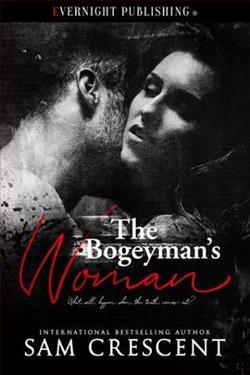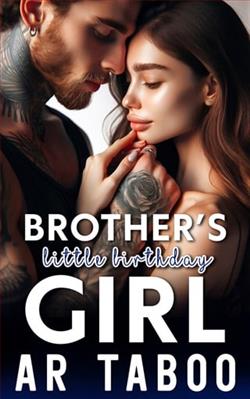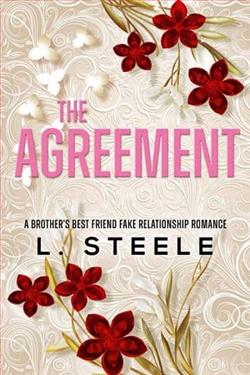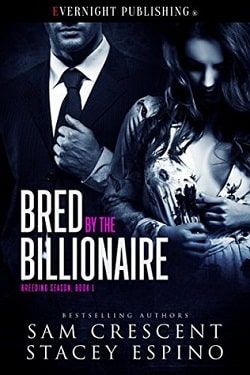Page 189 of Circle of Days
The track looked good, to her surprise. It had bedded in, probably because of winter rain and snow, and the branches had sunk into the ground. It would need fresh branches to be added, but a useful base had formed.
She took a group of priestesses with her, including some of the new novices. They all carried coils of rope they had made. They were young, and a day’s walk was no challenge to them, even carrying rope.
As they began the climb into the North Hills, Joia became vividly conscious that she was now near Dee. “My place is not far from here, to the east,” Dee had said when she and Joia were camped in Stony Valley. It had not occurred to Joia then to ask for more precise details. If it was close, Joia might have been able to walk there and back in a day. Or Dee might come to Stony Valley to check on her grandfather. It was painfully tantalizing to know she was close but not know where.
The sun was sinking as they arrived at the ridge and looked down into Stony Valley. Half the trees in the valley had disappeared. She had noticed en route that some of the flimsy branches-and-earth track had been replaced by embedded logs. Also, Seft’s team had built decent houses for themselves and their families, replacing the makeshift shelters of last year. She saw four new sleds in a row and one still being made. Ropes were coiled and stacked.
Her sister, Neen, came out of one of the houses and welcomed her. “Have supper with us tonight and we can chat,” Neen said.
“With pleasure.”
“The food’s almost ready.”
“Let me make sure my priestesses are all right.”
She told the priestesses to build a fire and gave them some beef and a large cooking pot. Chack and Melly were not required to feed the relatively small number here: their specialty was cooking for large crowds.
Joia returned to Neen’s house. The children were there, too, and she was pleased to see her nephew and two nieces. They ate together, then put the children to bed and sat talking until dark.
Joia remembered the night she had fallen asleep holding Dee’s hand. She imagined she was doing the same now, and again fell into a contented slumber.
That spring in the farmer country green shoots appeared in the plowed furrows, and Pia and Duff weeded regularly. They liked to be together in the fields. Pia loved Duff as much as she had loved Han, but in a different way. She had adored Han, but she saw Duff as an equal partner.
Yana was getting creaky and could no longer manage the bending, but she kept busy with the goats: three were pregnant. Little Olin was going to be tall like Han. His hair was fair, so perhaps one day he would have a blond beard like his father. He had seen only three midsummers, but all the same, Duff, his stepfather, was teaching him which green shoots were wheat and which were weeds.
Troon announced that the farmer community was not wellprepared to defend itself. One or two people wondered aloud who on earth might want to attack them, but Troon brushed aside such questions and ordered every man in Farmplace to equip himself with a bow and at least six arrows.
A few farmers already had such weapons, but most did not: farmers did not hunt. Troon got a hunter called Wel, who lived alone on the south side of the river, to show the farmers how to make bows and arrows. Duff had to find a flexible yew branch a little longer than he was tall, and some shorter branches of hazel to be made into arrows, and he had to get sinews from carcasses to twist into a bowstring.
When the bows were made, they all had to practice shooting at targets in East Wood. At first they were hopeless. Duff joked that the safest place to stand was in front of the target. But they got better.
Pia said to Duff: “He says all this is for defense, but it looks more like we’re getting ready to attack someone.”
Duff said: “Well, there’s no point in attacking the herders, there are too many of them.”
“Troon thinks they’re too cowardly to fight.”
Duff said: “He might be planning to burn more woodland—East Wood, perhaps, or Round Wood.”
Pia shuddered. “I hope not. The woodlanders take revenge—dear gods, we should have learned that lesson.”
Troon also announced that no one, man or woman, would be allowed to go to the herders’ Midsummer Rite. They would all be expected to stay and support the farmer feast. So few peoplecame to the feast that this measure was obviously unnecessary, and Pia was sure Troon had some secret scheme.
Duff told Pia he would go to the Midsummer Rite at the Monument anyway. He had taken part in Joia’s mission last year and wanted to do it again. Several other young farmer men felt the same: the event had been the best festival ever. Troon did not have the same hold on men as he did on women, and Pia thought the young men might go in defiance of Troon’s edict.
A few days later, Troon’s woman, Katch—who was Pia’s aunt—appeared while Pia was weeding. Katch was carrying a piglet, black with a pink snout and big ears. She showed the baby pig to Olin, who giggled.
She said to Pia: “I’m sorry to interrupt you in your work.”
“It’s all right. I need a break. That’s a healthy-looking piglet.”
“Would you swap a goat kid for a piglet?”
Pia had never had pigs, but they were not difficult to raise: they fed themselves by scavenging much of the time. “I’ll have to ask Duff and Yana,” she said, “but it seems like a good idea. We’ve only got one kid so far this spring. Do you want to see?”
The goats were not tethered during the day, and kids never wandered far from the mother. They were at the edge of the wood, eating the leaves of low bushes. Pia picked up the baby, and it bleated for its mother. She had to hold it tight. “It’s strong,” she said.
“If Yana and Duff agree, bring the kid to my house tomorrow and I’ll give you this little wriggler.”















